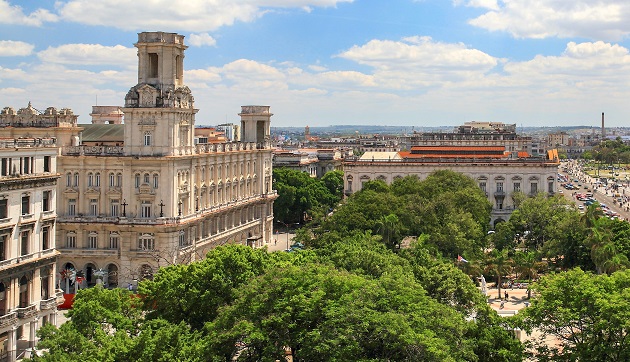Cuba was reviewed earlier during this year in the framework of the Universal Periodic Review conducted by the UN's Human Rights Council in Geneva.
 Havana, in Cuba. / Unsplash, CC0
Havana, in Cuba. / Unsplash, CC0
Like every other UN Member State, Cuba was reviewed earlier during this year in the framework of the Universal Periodic Review (UPR) conducted by the UN's Human Rights Council in Geneva.
At this occasion, our Geneva Liaison Office worked on a report explaining the situation of the Evangelical churches in Cuba. Following years of steady growth, Evangelicals currently amount to about 10% of the Cuban population.
While a small minority of churches are protected, most still face some forms of restriction and yet hope for the government to guarantee more freedom. In this current context, it has not been possible for an Evangelical Alliance in Cuba to be created yet.
DIFFERENT GROUPS, DIFFERENT SITUATIONS
The situation for Evangelicals in Cuba greatly depends on which denomination the congregations belongs to. One can distinguish three groups of Evangelical Churches in Cuba:
1. The protected churches: Since 1959, Cuba has tried to secure the support of established churches, sometimes by force. Churches accepting the liberation theology are close to the State and have favorable conditions. They represent 8% of evangelical protestants in Cuba and are affiliated the Cuban Council of Churches.
During the UPR, reports from Evangelical churches belonging to this group were submitted to the UN and praised the governments' attitude towards religious freedom. Unfortunately, those reports are not at all representative of the situation of Evangelical churches in general.
2. Repressed churches: Indeed, 80% of Evangelicals belong to a second group which does not hold the same privileges as the first group, because it wants to focus on the Gospel and be politically non-aligned. Consequently, denominations present in Cuba before 1959 but unwilling to affiliate with the Cuban Church Council have suffered severe persecution in the past century (confiscation of seminary, prison sentences for pastors, etc.).
Even if their situation has greatly improved since the 90s, compared to the severe persecution suffered in the 60s and 70s, they are still tolerated at best. The government has so far refused for them to organize as the “Cuban Evangelical Alliance”. Being tolerated but not recognized, many meet illegally in house churches, because they do not receive construction permit or authorization to meet in larger places. They face confiscation, demolition and their leaders can still face arrests. Indeed, some pastors have been arrested still recently and later released.
3. Illegal and persecuted churches: Churches established after 1959 in Cuba face the most difficult conditions, because they are considered illegal. They represent 12% of Cuban Evangelicals. Some are in the country since over 30 years but are still unable to register with the ministry of justice of Cuba. Their meeting locations can be destroyed, and their leaders arrested. Thus, dozens of pastors are regularly harassed and arrested. Some have been unjustly sentenced in court, such as pastor Núñez Velázquez who was sentenced on October 2016 to one-year house arrest.
THE HUMAN RIGHTS COUNCIL MISSES OPPORTUNITY TO RAISE CUBA’S RELIGIOUS FREEDOM RESTRICTIONS
Regretfully, during the recent UPR review in the on May 16 by the United Nations Human Rights Council, only the situation of the first group of the protected Churches was mentioned. Cuba affirmed that “no restrictions and no barriers were standing in the way of religious associations to exercise their right freely”.
This is not true for over 90% of Evangelicals in Cuba. Four report brought attention to restrictions on Freedom of Religion in Cuba and the situation of religious minorities in Cuba - By the World Evangelical Alliance (in French), by Christian Solidarity Worldwide (in English), by Patmos Institute (in Spanish), and by ADF International (in English). It was disturbing that, despite these reports, no State raised critical comments on religious freedom in Cuba, while India, Mozambique and the United Arab Emirates praised Cuba for its promotion of freedom of religion.
CHRISTIANS IN CUBA ASK FOR PRAYERS
Christians in Cuba pray their government will grant them more freedom in the future. They hope that denominations requesting to be registered will be recognized and able to operate freely under a fair rule of law.
They also hope that their government will come to realize that Evangelicals are not a threat nor a force of political opposition but a blessing for their country, because of the Christians praying for their government and wanting to serve the common good.
Michael Mutzner, Permanent Representative to the UN in Geneva of the World Evangelical Alliance.

Las opiniones vertidas por nuestros colaboradores se realizan a nivel personal, pudiendo coincidir o no con la postura de la dirección de Protestante Digital.
Si quieres comentar o